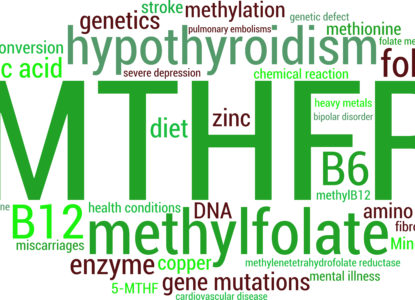Genetics Account for 50% of Kidney Stone Risk
Article at a Glance
- The genetic influence on stone formation is significant and twin studies estimate a heritability of >45%.
- Population-wide studies confirm that stone formation occurs at younger ages in patients with a family history of kidney stones and that patients with a positive family history had more stone episodes after the onset of the disease. Also, the average time between recurrences of kidney stones was significantly shorter in patients with a positive family history when compared with patients without a family history.
- Additionally, the amount of oxalate excreted in your urine plays an important role in calcium oxalate stone formation.

Contents
- What are oxalates and where do we get them from?
- Kidney stone prevalence is linked to sex and racial and ethnic differences.
- Genetic links to kidney stone development
- Genes involved in increasing risk of kidney stone development
- Microbiome-oxalate link
- What steps should you take to prevent kidney stone development?
Kidney stones are hard deposits made of minerals and salts that form inside your kidneys. Normally, your kidney excretes these compounds into your urine, but if they are present in larger amounts than normal, they begin to accumulate into stones. Passing kidney stones can be painful, but the stones don’t usually cause any permanent damage if they’re recognized early enough and can usually be passed by drinking lots of water.
Research has shown that the incidence of kidney stones has increased dramatically over the past 30 years, which is likely due to environmental changes, including inadequate diet and restricted physical activity.
Western diets are characterized by high consumption of animal protein, which leads to an increase in the excretion of calcium, oxalate, and uric acid in the urine, which consequently predisposes an individual to kidney stones. Excess body weight, some medical conditions, and certain supplements and medications have also been linked to kidney stones. In addition to this, research shows that some people have a genetic susceptibility towards developing stones by inheriting mutations in the genes necessary to balance minerals in the urine.
Before we get into risk factors, let us discuss the main components of kidney stones, known as oxalates.
What are oxalates and where do we get them from?
Dietary oxalate is plant-derived and is a component of vegetables, nuts, fruits, and grains. In normal individuals, approximately half of our urinary oxalate is derived from the diet, and half is produced by our bodies. So, once it’s ingested, we excrete it from our urine (a process that’s dependent on your kidneys). The amount of oxalate excreted in your urine plays an important role in calcium oxalate stone formation.
Foods that are high in oxalates include:
- Rhubarb
- Spinach
- Swiss chard
- Arugula
- Raspberries
- Certain varieties of kale
- Blackberries
- Blueberries
- Buckwheat
- Potatoes
- Potato Chips
- Nuts
Strikingly, cooked, and raw spinach is a major source of dietary oxalate in study populations.1,2 Consumption of a normal portion of spinach (50–100 g) will result in a load of ~500–1,000 mg of dietary oxalate and significantly increase the amount of oxalate excreted in the urine.
Kidney stone prevalence is linked to sex and racial and ethnic differences.
Studies have confirmed that non-Hispanic white individuals had the highest stone risk (10.3%), followed by Hispanics (6.4%) and non-Hispanic African Americans (4.3%).3 A study from 2005 states that “5% of American women and 12% of men will develop a kidney stone at some time in their life, and prevalence has been rising in both sexes.”4
The melamine scandal.
The risk of developing kidney stones is associated not only with the high intake of animal proteins but also with the presence of prohibited substances that are added by food producers during production.
In September 2008, the melamine contamination of baby formula was exposed.5 Melamine is a chemical used to increase the nitrogen content of diluted milk, giving it the appearance of having a higher protein content to pass quality control tests.
The number of victims who consumed the melamine contained in milk was estimated as 240,000, of which six children died from either kidney stones or kidney damage. Shockingly, approximately 54,000 children were hospitalized. According to data from the World Health Organization, 82% of the children who were affected by melamine consumption were under two years of age.5
Genetic links to kidney stone development
Population-wide studies confirm that stone formation occurs at younger ages in patients with a family history of kidney stones and that patients with a positive family history had more stone episodes after the onset of the disease. Also, the average time between recurrences of kidney stones was significantly shorter in patients with a positive family history when compared with patients without a family history.6
This tells us that we can inherit genes associated with stone development. As with all diseases, certain mutations or SNPs in these genes can play significant roles.
Genes involved in increasing risk of kidney stone development
The genetic influence on stone formation is significant and twin studies estimate a heritability of >45%. Most of the genes I’ve listed below increase the risk of calcium oxalate kidney stones, but some just increase the risk of kidney stones in general (i.e. kidney stones composed of other minerals):
- CaSR (calcium-sensing receptor) gene (rs1501899): Codes for a receptor that senses extracellular calcium levels in the kidneys.
- DGKH (diacylglycerol kinase) gene (rs4142110): Involved in regulating intracellular concentrations of diacylglycerol and phosphatidic acid.
- CLDN14 gene (rs219780): The claudin-14 gene codes for a protein necessary for the cells to join together.
- UMOD gene (rs4293393): The UMOD gene codes for uromodulin, the most abundant protein in the urine that is responsible for inhibiting calcium crystals in the urine.
- AGXT (alanine-glyoxylate aminotransferase) gene (rs34116584). Codes for an enzyme found in the liver that converts a form of oxalate into glycine. Insufficient enzyme production leads to excess oxalate for the kidneys to clear.
Microbiome-oxalate link
| Oxalates and kidney stones | reduced risk | risk | |
| CASR | rs1501899 | G | A |
| DGKH | rs4142110 | T | C |
| CLDN14 | rs219780 | T | C |
| UMOD | rs4293393 | A | G |
| AGXT | rs34116584 | C | T |
You may have heard of the microbiome, but if not, it is described as the collection of all microbes, such as bacteria, fungi, viruses, and their genes, that naturally live inside our bodies, particularly our gut. Although microbes are so small that they require a microscope to see them, they have huge effects on human health and wellness.
A specific bacteria known as Oxalobacter formigenes is an oxalate-degrading bacteria and plays a dominant role in using the oxalate we have ingested, thereby reducing the levels. A recent study that collected stool and urine samples from 58 patients with kidney stones and 29 healthy controls found that the abundance of Oxalobacter formigenes was much lower in individuals with kidney stones compared to the healthy controls.8
These results mean that when there are lower amounts of this bacteria in your gut, the oxalates ingested from your diet cannot be broken down properly, which may increase your risk for kidney stone development. Colonization of your gut with this organism has been reported to decrease the risk of recurrent stone formation by 70%!9
What steps should you take to prevent kidney stone development?
If you’re prone to developing calcium oxalate kidney stones, you may benefit from a diet low in oxalates that consists of 50 to 100 milligrams of oxalates per day.10
According to the National Kidney Foundation11 eating enough calcium, staying hydrated, and reducing sodium intake are all crucial in preventing stone formation.
You could also eat calcium-rich and oxalate-rich foods together as the oxalate and calcium in these foods will bind together before entering the kidneys, leading to less calcium in the urine and a lower chance of kidney stone formation.12
Most people know to avoid high oxalate foods like spinach and kale, but also avoid nut butters, potatoes, potato chips, and sweet potatoes if you have a predisposition towards kidney stones.



